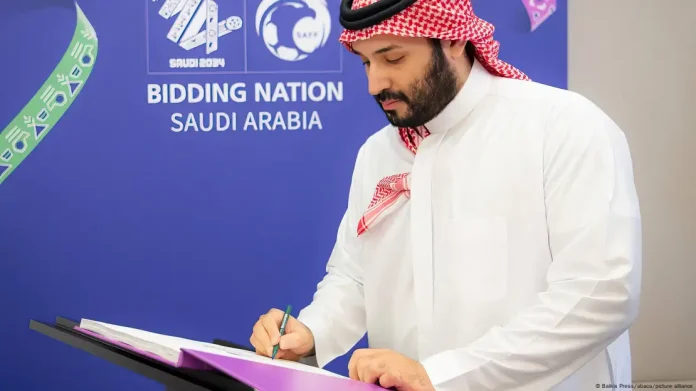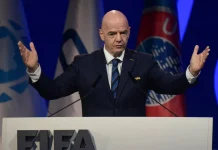The FIFA World Cup is not just a sporting occasion; it is a global celebration that brings together people from all walks of life. It is a platform that promotes unity, cultural change, and universal values of freedom and human rights. With FIFA planning the World Cup in 2034, the choice of Saudi Arabia to host this prestigious event has caused a lot of issues.
In the 2021 World Press Freedom Index by Reporters Without Borders, Saudi Arabia was ranked 170th out of 180 countries, receiving the lowest rating of “very bad” for press freedom. Central to this controversy is Saudi Arabia’s infamous press freedom report. The lack of press freedom in Saudi Arabia is not the most effective affront to the ideas that the World Cup holds. However, it also raises extreme concerns about the protection, transparency, and integrity of the event.
The State of Press Freedom in Saudi Arabia
Saudi Arabia ranks most of the worst international places internationally in terms of press freedom. Saudi authorities tightly control the media, every household, international, and dissenting voices are regularly met with harsh repression. Journalists, bloggers, and activists who criticize the authorities face disproportionate results, including imprisonment, torture, and even death.
According to Freedom House’s 2023 Freedom on the Net report, internet users in Saudi Arabia experience “extensive censorship and surveillance,” which significantly restricts their access to diverse content and hampers their ability to express themselves freely online.
One of the most infamous examples of this repression is the 2018 murder of Jamal Khashoggi, a Saudi journalist and critic of the authorities, who was brutally killed at the Saudi consulate in Istanbul. so far as the Saudi regime silences dissent. The incident alone raises critical questions about Saudi Arabia’s suitability as a figurehead for an event as globally expansive as the FIFA World Cup.
Implications for Journalists and Media Coverage
The World Cup attracts hundreds of reporters from around the world who come to cover the event and provide intense coverage of everything from bouts to the lifestyle and politics of the host United States. In a country like Saudi Arabia, where press freedom is severely restricted, reporters could face full-scale challenging situations while doing their jobs.
The 1992 Basic Law of Governance in Saudi Arabia restricts free expression by prohibiting media from “engaging in actions that lead to disorder and division, compromise state security and public relations, or undermine human dignity and rights. Saudi authorities have a history of censoring and manipulating the media to serve their interests. Journalists covering the World Cup in Saudi Arabia could face severe restrictions, with limited access to facts and the constant danger of surveillance.
Human Rights
Hosting the World Cup in a country with one of these poor press freedom records raises wider human rights concerns. The lack of press freedom in Saudi Arabia is symptomatic of a much wider pattern of repression and authoritarianism. Saudi authorities have been criticized for their treatment of women, minorities, and political dissidents, in addition to engaging in warfare in Yemen that has resulted in massive human rights abuses.
By awarding the World Cup to Saudi Arabia, FIFA would send a message that it is far more inclined to overlook these critical human rights abuses in the pursuit of profit and impact. This may no longer tarnish FIFA’s popularity at best, but also undermine the values of equality, scale, and recognition that the World Cup is meant to represent.
The Risk of Sportswashing
Saudi Arabia’s bid to host the World Cup can be seen as part of a wider method of “sporting fabrication”, whereby authoritarian regimes use high-profile sporting activities to bolster their global image and divert attention from human rights abuses. By hosting the FIFA World Cup, Saudi Arabia could seek to project an image of modernity, progress, and openness to the world while continuing to suppress free speech and human rights abuses at home.
Since early 2021, Saudi Arabia has reportedly invested at least $6.3 billion in sports-related deals, marking a substantial increase from previous years. This spending is viewed as a strategic effort to divert attention from the kingdom’s human rights record, especially in the wake of the high-profile murder of journalist Jamal Khashoggi in 2018. If successful, Saudi Arabia should use the opportunity to draw attention away from its repressive edicts and legitimize its rule globally.
The Need for Transparency and Accountability
The World Cup is not just a sporting spectacle; it is a huge logistical and financial undertaking that requires a high degree of transparency and accountability. In a rustic environment where the media is tightly controlled and dissent is suppressed, it is miles difficult to make sure that an event can be carried out in a truthful and obvious manner. Concerns have already been raised about the bidding system for the 2034 World Cup, with allegations of corruption and backroom deals. Currently, at least 28 journalists and bloggers are detained in Saudi prisons, a number that has more than doubled since 2017.
In a rustic environment like Saudi Arabia, where the government has a history of suppressing information and controlling narratives, these concerns are likely to be exacerbated. Without an unbiased and unbiased press to hold the organizers to account, there is a great danger that the World Cup will be marred by corruption, mismanagement, and human rights abuses.
Conclusion
The FIFA World Cup is a celebration of the most popular sport in the world. It is a symbol of unity, diversity, and freedom. By awarding the 2034 World Cup to Saudi Arabia, a country with one of the worst press freedom records in the world, FIFA risks betraying those values and undermining the integrity of the event.
The lack of press freedom in Saudi Arabia is not just a domestic problem; it has global implications for the security, transparency, and credibility of the FIFA World Cup. Journalists could face excessive restrictions and threats, human rights abuses could be swept under the carpet, and the event could be used as a device for sports washing. FIFA has a responsibility to ensure that the World Cup is hosted in a country that respects the principles of press freedom and human rights.












